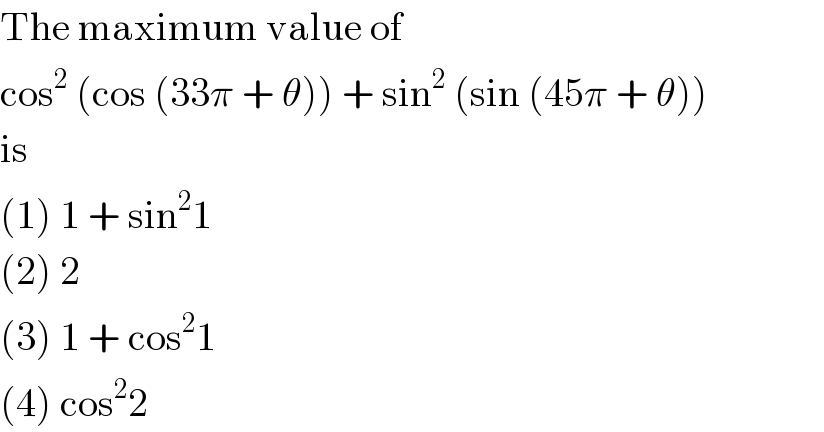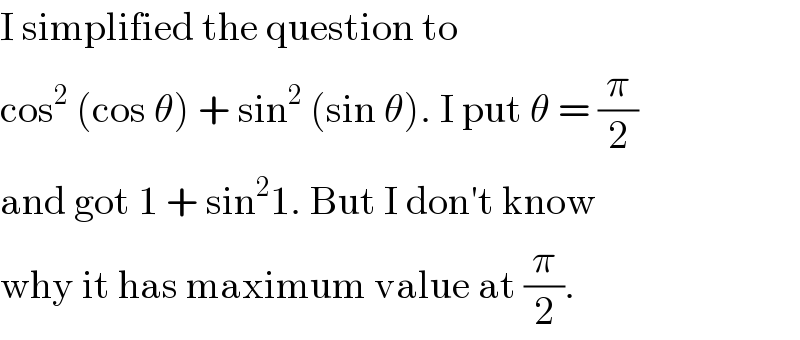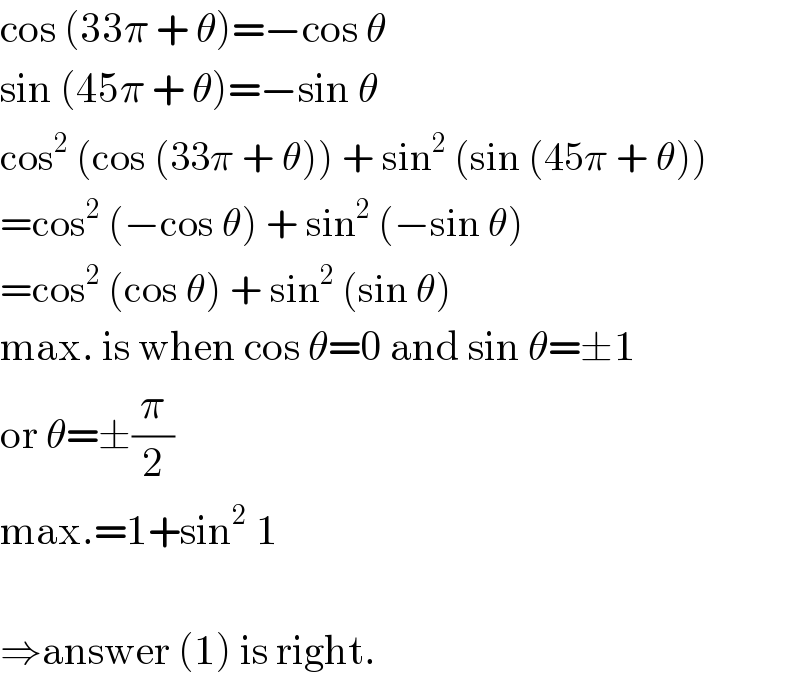
Question and Answers Forum
Question Number 16740 by Tinkutara last updated on 26/Jun/17

Commented by ajfour last updated on 26/Jun/17

Commented by Tinkutara last updated on 26/Jun/17

Commented by prakash jain last updated on 26/Jun/17
![u=cos^2 (cos θ)+sin^2 (sin θ) =1+(1/2)(cos (2cos θ)−cos (2sin θ)) u′=sin θsin (2cos θ)+cos θsin (2sin θ) =sin θ{(2cos θ)−(((2cosθ)^3 )/(3!))+...}+ +cos θ{(2sin θ)−(((2sin θ)^3 )/(3!))+−..} =sin 2θ[{1−(((2cos θ)^2 )/(3!))+..}+{1−(((2sin θ)^2 )/(3!))+..}] u′=0 when sin 2θ=0⇒ θ=0, (π/2) double derivate will give us whether it is maxima or minima. 0 minima (π/2) maxima](Q16838.png)
Answered by mrW1 last updated on 26/Jun/17

Commented by Tinkutara last updated on 26/Jun/17

Commented by ajfour last updated on 26/Jun/17

Commented by Tinkutara last updated on 26/Jun/17

